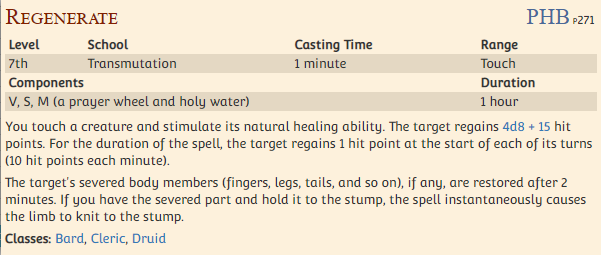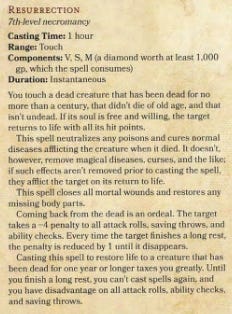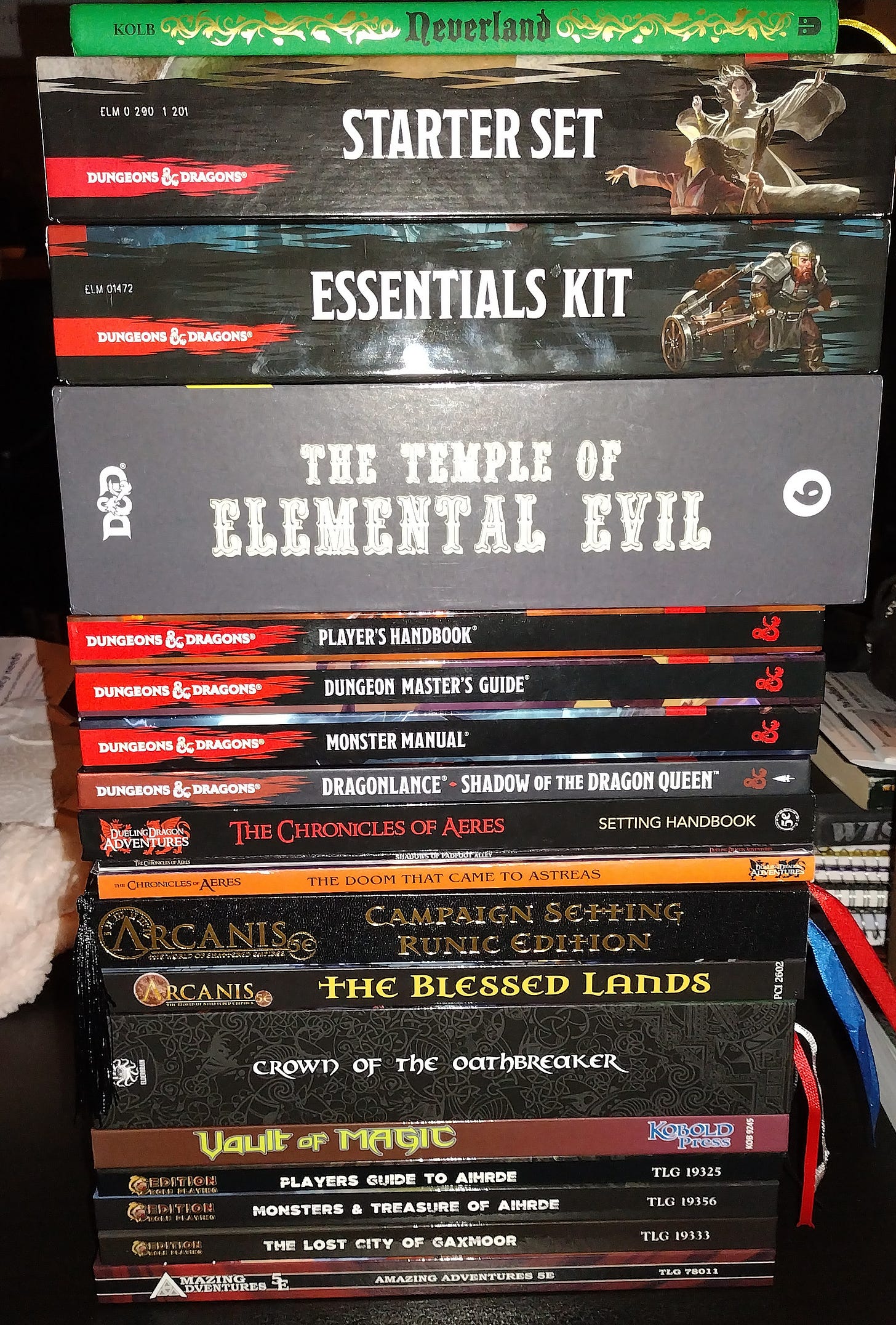The Great Combat Wheelchair Debate
If An Optional Rule Is Presented And No One At The Table Uses It, Is It Still A Rule?
Over the last couple of days, my Twitter account has been embroiled in controversy. Why, you ask? If you follow me on Twitter (@Ulfhedrengr), you’ll see why. Recently, photos surfaced of a couple of human cleric miniatures for D&D and the human cleric, the healer of the group, is in a wheelchair.
I wish it were a joke but, unfortunately, I have proof right here:
My first impression was to groan. Many outlets such as Nerdist have praised the “combat wheelchair” as a step in the right direction for representation of the disabled.
First, I should make a few things clear. Sara Thompson is the author of this optional rule for D&D. She’s disabled herself and lives in the UK. Her creation was unveiled three years ago. It caused some backlash and a very small minority began attacking her for the creation of it.
When it comes to Sara Thompson, I have no problem with her specifically. I do have a problem with the item itself.
The FAQ that comes up in the first of the free document that I’ve downloaded cites the Drizzt series by R.A. Salvatore in which a wheelchair was used and, of course, it’s D&D Canon.
As Thompson puts it in her own words, and I quote the document directly:
"Why would anyone need a wheelchair? This world has magic!"
Again, we recommend you read Salvatore's 'Drizzt' novels. Additionally, healing spells like Restoration and Regeneration are very costly, and what about those of us simply born with our disabilities? You cannot regenerate or restore what was not there to begin with. And some of us? Well, we don't want to be 'fixed'.
I’ll grant that this is dismissive of a player concern. It does fly in the face of a core rule and it is this from the 5th Edition Player’s Handbook.
Point taken, you cannot restore what was never there, however, Page 272 of the PHB, also has these two spells.
and
Where the dead can be raised, I doubt there is a possibility that even someone born with a certain affliction can have that affliction removed.
So, in a world with such a high emphasis on magic, why the wheelchair? Let’s have a look at the description of the chair’s ability. How are you to navigate stairs? I mean, no evil villain in their wildest imaginations would ever go “You know, I think we need wheelchair-accessible ramps in this dungeon.” Let’s have a look.
Let's face it, stairs are difficult, especially when you're in a wheelchair, which is why the beacon stone is here to help. By tapping your fingers or hand against the stone twice, you inform it that it needs to help you go up or down a flight of stairs. As a result the chair begins to hover, starting at 2 feet off the ground.
Ah, there it is. The beacon stone. So we are going to use magic anyway to get around that which would have been solved by magic.
It’s at this point where I, as the forever DM here, find this particular supplement rather pointless and also patronizing to those who would take a look at it and decide it wasn’t something that they wanted to do if they were disabled. Such was the sentiment expressed by The Pickled Dragon. Here, have a watch:
I know you think that this is only one voice out of the many, however, there have been others as well…
And what it was he was agreeing with was my thread that I initially posted. I’ll let you read it rather than recap it here.
Now, I do have to point out something. I’ve spent this time tearing down an idea but I should also double back to this point that she makes and I’ll quote directly again.
And remember: No one is making you use this supplement. It is here and exists for those of us who need and who want to see ourselves in the tabletop games we so dearly enjoy
First, I want to point out that, lived experience here, simply playing AD&D Second Edition which was the family-friendly version (With all the demons and devils removed from the core rulebooks) got me all types of abuse and death threats that lasted until the day I left my hometown 15 years ago. I never once wanted to be me, the scrawny kid with the long, stringy hair, getting his ass kicked. I wanted to be the hulking barbarian who liked to drink, fight his way through a small contingent of enemies only to emerge, covered in their blood and staring down the remainder who were ready to run when he said the word “boo!” through clinched teeth while still gripping his sword. Never once did I ever want to “see myself” in the game. I have only ever wanted to be someone else, someone I couldn’t be for whatever reason. D&D took limits off me that I faced in real life and help me face and overcome those very real limits on me as a person. That being said, she does point out that no one is making anyone use this supplement. That’s fine. Optional rules are optional, always have been and always will be. The Core Rules are the only rules that matter and, personally, after Wizards of The Coast’s dismal track record of gaffes in the last couple of years, possibly more, Nearly everything I own for D&D 5th Edition is third-party. Let’s not get into what I own in PDF because, that library is massive.
Even this photo is not all-inclusive of the physical 5th Edition books I own. Let’s keep something in mind. The only books I truly need to run 5th Edition D&D are only the three core rulebooks. The only book I truly need to play 5th Edition D&D, on the other hand, is the Player’s Handbook. If I didn’t want to spend that money, then all I truly ever needed is the Basic Rules which are a free download.
That means just about every book you see in the above photo is optional to a greater or lesser degree. Personally, I’ve always been a proponent of getting the core rulebooks and, if you needed supplements, get them from a third party, independent creator.
Now, I need to address something Thompson did that does make sense and works well. As stated before, she makes supplements that allow disabled players to play disabled characters. While not being disabled myself, I have in the past, played a disabled hacker who had part of his nervous system fried by some security measures in a system he was trying to hack while Netrunning. The security feedback nearly killed him but he is alive, he’s unable to jack in as normal and he’s paralyzed from the waist down and confined to a wheelchair. He didn’t want to go into deep debt in order to have his useless meat legs replaced with cybernetic prosthetics, so he opted for a traditional wheelchair that he automated himself. He still hacks but he does so by traditional means which means sitting at a terminal and doing his runs using that terminal.
Still, here’s a concept that actually works, it makes sense in the setting and there are two versions. This one is available at R. Talsorian Games’ DLC section for Cyberpunk RED.
Some, in the discussion of the combat wheelchair, have expressed having something with spidery legs and it seems that Thompson has done just that. It’s only a three-page supplement but does give just enough detail for players to decide which chair would be appropriate for their character, if any and what they’d like to use to deck it out and customize it.
In D&D, a wheelchair is impractical and, given that there are other options such as enchanting armor to give you the exoskeleton vibe, I don’t see that as unreasonable to not include it at my table. In games like Shadowrun, Modern Age, Cyberpunk, Hostile, Cepheus, Traveller or some other such game that isn’t set in medieval times or even in a Sword & Sorcery game, I don’t see where allowing it is unreasonable as it fits with the setting and doesn’t come across as ham-fisted or patronizing.
Remember when I talked about how optional things were? Well, it seems there have been a few trolls that have climbed into my few threads on Twitter in the last few days that have claimed that I’m “bigoted” and “ableist” not to mention “non-inclusive” to name a few of the names that have been bandied about. If a game supplement, produced and distributed for free is truly optional, then why the name-calling and ad hominem attacks when I opt out of using it?
For many many years, some have bought the books they wanted, left the ones they didn’t or only bought the books they could afford which means many never once played with any of the optional rules and merely ran the entire game using only a player’s handbook. Not once were those people ever called names for doing so. The understood thing was that they played and, while their table may or may not have been something we all came to know and love, one thing remained, they played same as the rest of us and that’s what mattered most. If their table wasn’t to our liking or vice versa, then we played at our respective tables and shared stories afterward. No harm, no foul. The problem with those who “want to see themselves in the game” is that, more often than not, those people will mistake their microcosm for the whole and everyone is to conform without regard to their concerns. In fact the concerns of others are dismissed outright and become the subject of derision, condescension and ad hominem attack. That’s a level of force via peer pressure exerted onto someone who does not wish to exercise an option.
If it makes sense for your table, then use the supplement. If it doesn’t, then don’t. Either way, it’s your table, your rules, always in all ways. I do recommend giving Thompson’s supplement for Cyberpunk RED a look because I think it truly fits and will work for your game of Cyberpunk but, if you have a better idea for something homebrewed, go right ahead. Again, no harm, no foul.
Author’s Note: This content will always be 100% Free to you. There are no plans to monetize it ever. If you really want to contribute, simply comment, subscribe and share these posts with friends. If you feel like I’ve earned that something extra, hit any of the wish lists and you can send a gift or just come find me on the internet and hang out with me. If you send something, please be sure to include your name so I can personally thank you. If you don’t, then simply feel free to enjoy the content with my deepest appreciation for your visit. Thank You.











I've read the comment thread you spoke of on Twatter/X whatever the hell it's called nowadays, and rolled my eyes at all of it. Its the same argument over and over again.
All I could see from these people was, as you stated in the article: a "me-me-me" self-centered place of entitlement. In games where you can be anything, go anywhere, do anything, sadly, for some it seems like a lot of people will develop main character syndrome.
My biggest contention with people wanting to "see a bit of themselves" in games, I feel like this demand for representation in games comes from narcissism and entitlement. Its usually the authors of the content that want nothing more than an unrealistic self-insert because they are unable to distinguish between reality and fiction.
I do, however, disagree with a wheel chair not making sense in a fantasy setting. And I've seen examples in the thread, in a case of like, a psionic or a wizard who can move the chair through will or magic, which you also addressed. That being said, I feel like it would only work in the short-term, like a session for a player or an encounter for an NPC or an antagonist.
Would I use it? Probably not.
The option is there, but it certainly isn't for me.
I dont respect this. Its just a hassle to drum up the imagination to make dungeons as up to standard building code. Also we got the ability specifically in your campaign to chuck a fireball call upon the angels and make a posse out of bones but repairing a lower spinal cord it proves it more difficult.